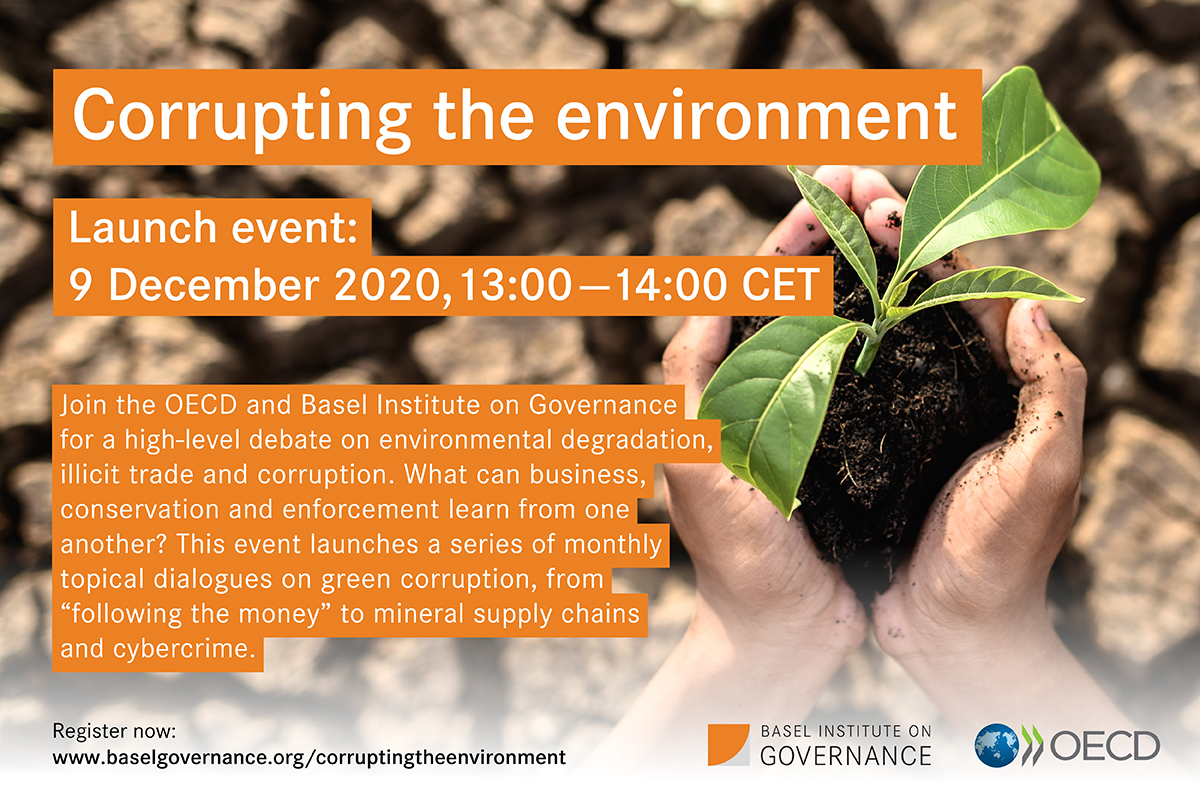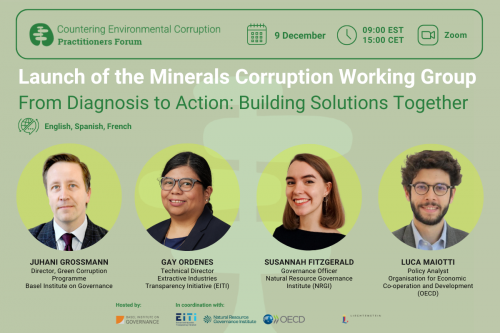Lighting the path ahead at the intersection of environmental degradation, illicit trade and corruption

Are we at a turning point in the fight to save our planet from the ravages of environmental crime and corruption?
Possibly. The ongoing pandemic, caused by a zoonotic disease, has brought home the fact that environmental degradation is already altering our lives. Hopes that this was a one-off disruption and that we could soon return to the way things were have been dashed. It is now frighteningly clear that the pace of abuse of our planet keeps accelerating and the next crisis looms around the corner.
But there is light as well as darkness. The increasingly loud chorus calling for environmental conservation has diversified significantly. Technical experts from all fields understand that they need to not only alter their individual behaviour, but also determine how their know-how can be part of the solution.
How expertise in illicit trade and corruption can play a role
Experts in both illicit trade and corruption are increasingly prominent voices in this chorus. Both are particularly relevant. Why?
First, because actors engaging in environmental degradation at an industrial scale actively utilise the global trade infrastructure. The abuse spans logistics, finance, regulatory and dispute mechanism frameworks, and more.
Secondly, the measures put in place to protect the environment, and government efforts to punish those who violate them, are frequently undermined by unprincipled actors and corrupt officials. Bribery, extortion, conflicts of interest, fraud and other forms of financial crime are widespread.
This is why the tools that the counter-illicit trade and anti-corruption communities have honed over decades are highly relevant to efforts to reduce environmental crime and the consequent degradation.
- Relevant anti-illicit trade tools range from customs strengthening efforts and transparency and tracking mechanisms to supply chain due diligence in the extractive industries.
- Anti-corruption measures targeting weaknesses closely associated with environmental crime include asset recovery and financial investigations, building systems to prevent opportunities and lower incentives for extortion, and controlling corporate corruption risks.
Join us for a virtual dialogue series: Corrupting the environment
The Organisation for Economic Co-operation and Development (OECD) and the Basel Institute on Governance are among the organisations working to apply these tools to existing efforts to counter environmental crime and degradation.
Together, to explore progress, challenges and lessons learned, we are hosting a monthly series of virtual dialogues in late 2020 and the first half of 2021.
Under the banner of "Corrupting the environment", the events will bring together leading experts from all sectors and corners of the world to explore the intersection between environmental degradation, illicit trade and corruption.
Please join us for the series launch on Wednesday, 9 December 2020, International Anti-Corruption Day.




